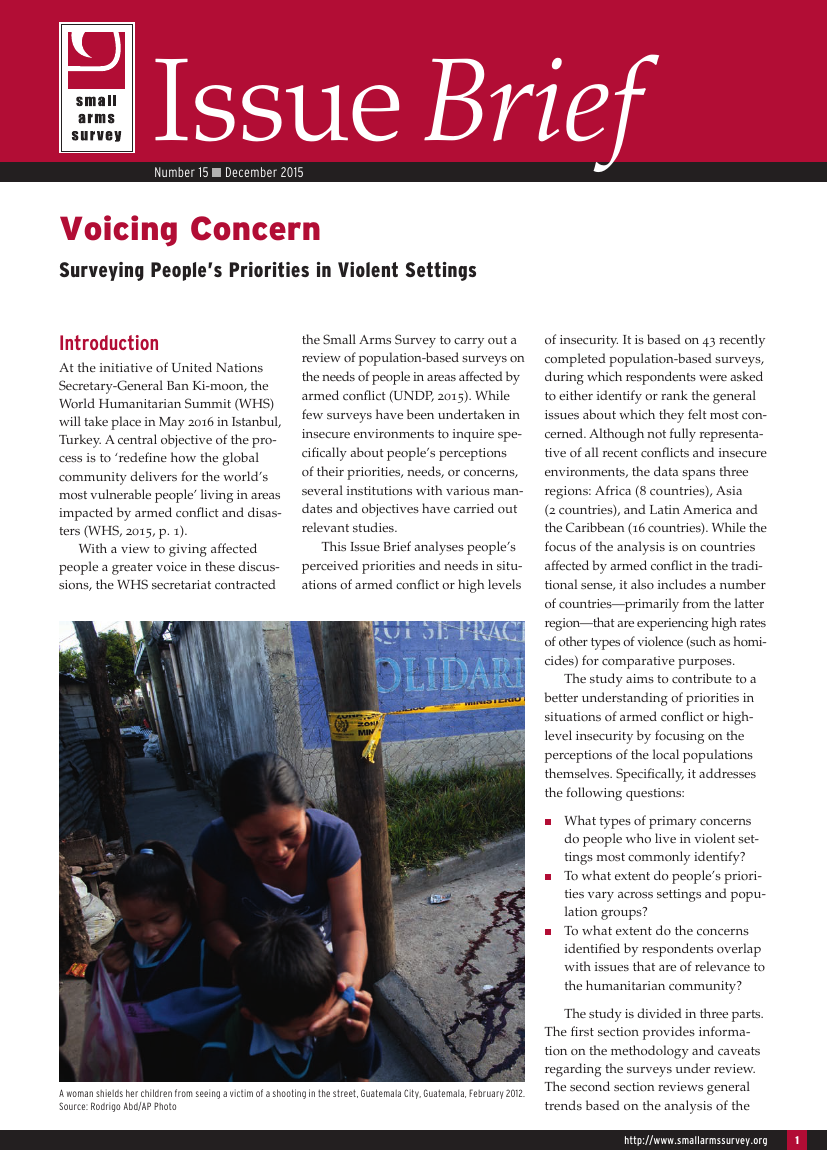
Voicing Concern: Surveying People's Priorities in Violent Settings (Issue Brief 15)
At the initiative of United Nations Secretary-General Ban Ki-moon, the World Humanitarian Summit (WHS) will take place in May 2016 in Istanbul, Turkey. A central objective of the process is to ‘redefine how the global community delivers for the world’s most vulnerable people’, living in areas affected by armed conflict and disasters.
The WHS secretariat contracted the Small Arms Survey to carry out a review of population-based surveys on the needs of people in areas afflicted by armed conflict. The Issue Brief, Voicing Concern: Surveying People’s Priorities in Violent Settings, analyses 43 population-based surveys recently completed in Africa, Asia, and Latin America and the Caribbean. While the analysis focuses on countries suffering armed conflict in the traditional sense, it includes several other countries—primarily from Latin America and the Caribbean—that experience high rates of other types of violence (such as homicides).
The Issue Brief finds that:
- Security issues, unemployment, and the economy stand out as respondents’ most pressing concerns in areas experiencing ongoing conflict or particularly high rates of violence.
- When prospects for security improve, priorities shift. In several African countries that are emerging from conflict, for instance, respondents prioritized issues of relevance to the humanitarian community, including the provision of food, health, and education.
- Men were generally more prone to prioritize security than women were. Compared to men, female respondents were more concerned about food, water, and health. This discrepancy suggests that roles, expectations, and effects in insecure settings differ according to a person's sex.
- Overall, perceptions of priorities differ significantly between urban and rural respondents. Food and healthcare appear to matter more in rural settings, while security concerns seem stronger in urban areas.
The findings justify the calls made during the WHS consultation process to ‘keep people safe from harm by putting protection at the centre of humanitarian action’—both in terms of protecting vulnerable groups and humanitarian aid workers. It also implies that security should be consistently considered in humanitarian programming, as it is likely to feature among beneficiaries’ primary concerns, if not as a prerequisite for addressing their other needs.
Variations of perceptions among population groups also demonstrate the importance of collecting sex-disaggregated data, since it can provide critical insight that the humanitarian community can use to improve its operations and efficiency. While survey research comes with its own caveats and challenges, it holds great potential for assisting the humanitarian community in meeting important goals set out by the WHS process.
Have your say about Small Arms Survey publications and products: take 5 minutes to fill out our questionnaire.